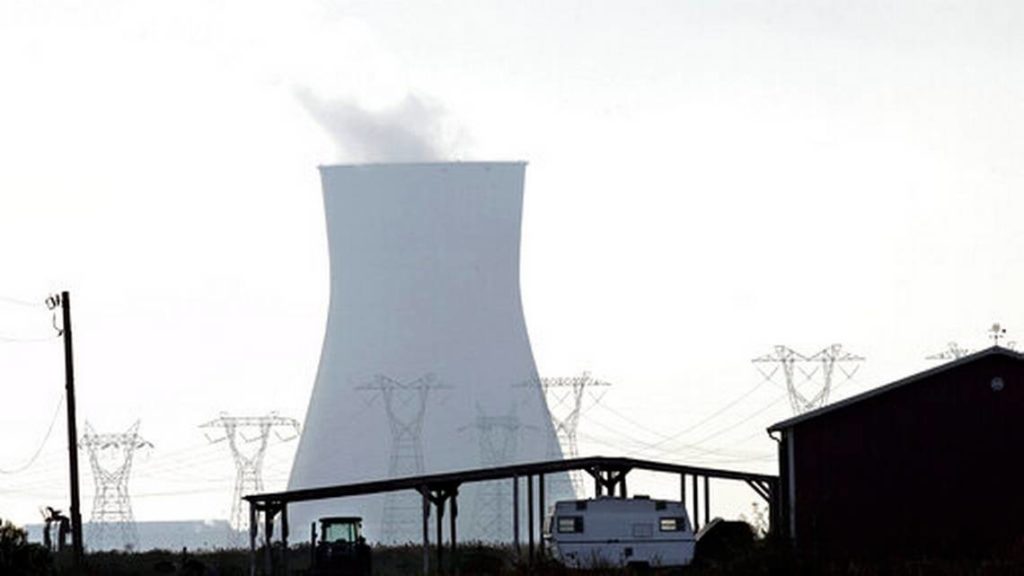FILE – In this Nov. 13, 2007, file photo, a tractor and trailer sit near an outbuilding on a small farm, not far from a cooling tower at the Salem Nuclear Generating Station operated by Public Service Enterprise Group Inc. in Lower Alloways Creek Township, N.J. New Jersey regulators are expected to decide this week whether to approve a $300 million bailout of the state’s three nuclear power plants, operated by the state’s biggest utility company. Mel Evans, File AP Photo
New Jersey regulators are expected to decide this week whether to approve a $300 million bailout of the state’s three nuclear power plants, operated by the state’s biggest utility company.
The Board of Public Utilities is expected to decide on the customer-financed subsidy during its meeting Thursday, under a law Democratic Gov. Phil Murphy signed last year.
The measure gave the board the responsibility to determine whether Public Service Enterprise Group’s nuclear plants, all based in southern New Jersey, will get the financial rescue that the company lobbied intensely for last year.
A closer look at the issue:
WHAT DOES THIS MEAN FOR UTLITY CUSTOMERS?
If the subsidy is approved by the five-member board, the average residential utility customer’s bill would go up an estimated $41 a year, through a fee passed on by all the state’s utility operators, not just the owner of the nuclear plants.
Commercial customers say they expect to see big spikes if the subsidies go through. The Chemistry Council of New Jersey, which advocates on behalf of chemical firms, estimates that its biggest members would see their bills climb from about $700,000 a year to about $1 million per year.
___
WHY IS SUCH A SUBSIDY NEEDED?
PSEG forecasts the three plants at two locations in Salem and at Hope Creek would fail financially without the help from ratepayers. That’s because, the company says, it’s much cheaper to produce electricity using natural gas than from nuclear power.PSEG says keeping the plants operating requires an investment of $100 million to $200 million every year. "The evidence submitted by PSEG proves the nuclear plants’ projected revenues do not support continued investment," the company said in a statement. "It would be irresponsible for PSEG to invest on that scale in a business that is not expected to earn a profit."The utility says the closure of the plants would cost about 2,000 jobs.___HOW WOULD THE CLOSURE OF THE PLANTS AFFECT ENERGY SUPPLIES?The utility estimates nuclear power accounts […]
